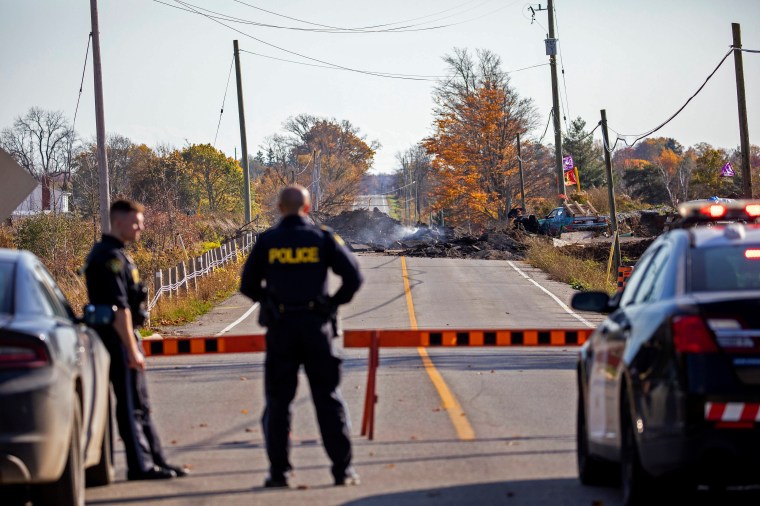On September 2, 2020, police in Ontario criminally charged Indigenous journalist Karl Dockstader in relation to his reporting on a campaign to oppose a planned housing development in the province’s Haldimand County, he told CPJ by phone. Charges against Dockstader and at least two other Indigenous people who were documenting the campaign were pending in early November, though none were being held in custody, according to CPJ interviews.
Dockstader had been covering demonstrations against the development since July for One Dish One Mic, a show on Indigenous affairsthat he co-hosts on the Niagara regional radio station 610 CKTB, he told CPJ. Protesters dispute the terms of the development on land that was granted to the Haudenosaunee, an alliance of local Indigenous communities also known as the Six Nations of the Grand River, in 1784, according to CBC News. Dockstader is a member of the Haudenosaunee from the Oneida of the Thames, Bear Clan.
Dockstader said that he camped at the site to report on the protest from August 23 to 29, and turned himself in at the request of an officer from the Ontario Provincial Police who arrested him on charges of disobeying a court order and mischief in relation to property. A court ordered police to clear the site of protesters in August, resulting in more than a dozen arrests on the same charges, according to CBC. Both charges carry possible fines and even jail time under Canadian law, depending on the circumstances. Dockstader told CPJ he would not know the penalties he faced until his court hearing, but said he hoped the charges would be dropped.
“As a journalist, as long as I wasn’t interfering or supporting the land defenders in any way, I went there thinking I had protected status,” Dockstader told CPJ. “I even had an interaction with the police on August 25. I gave them my business card and explained what I was doing.”
A copy of a police-issued record of the charges that was viewed by CPJ bars Dockstader from communicating with owners or employees of Foxgate Developments, the company proposing to build on the site. A hearing in the case is scheduled for November 24 at the Haldimand county court, according to the document.
Two other people arrested on the same charges told CPJ they had been documenting the demonstrations. Courtney Skye, a media commentator and research fellow at the Yellowhead Institute, a First Nation-led research center at Ryerson University in Toronto, told CPJ she was arrested on September 3 and has a hearing scheduled on November 24; she was also barred from contacting the developers, she said.
Starla Myers, who reports for an Indigenous community news website, Real People’s Media, told CPJ she was notified of an arrest warrant in her name on September 10 and turned herself in on September 16. “I had a hunch it was about the Land Back coverage,” she told CPJ. The campaign to dispute the development site is known as 1492 Land Back Lane, according to CBC.
Myers was also banned from returning to the site or communicating with Foxgate employees, according to a Real People’s Media report, which said she did not sign a document agreeing to appear in court.
Rodney LeClair, an Ontario police constable, told CPJ in an email that he could not provide any information relating to individual cases. Echoing a statement made to media outlets, LeClair said that “engaging in activities outside of their reporting purpose, could subject media personnel to charges in relation to violation of a court order and other applicable offences.” The constable also said that “being a reporter does not exempt anyone from the applicable laws.”
